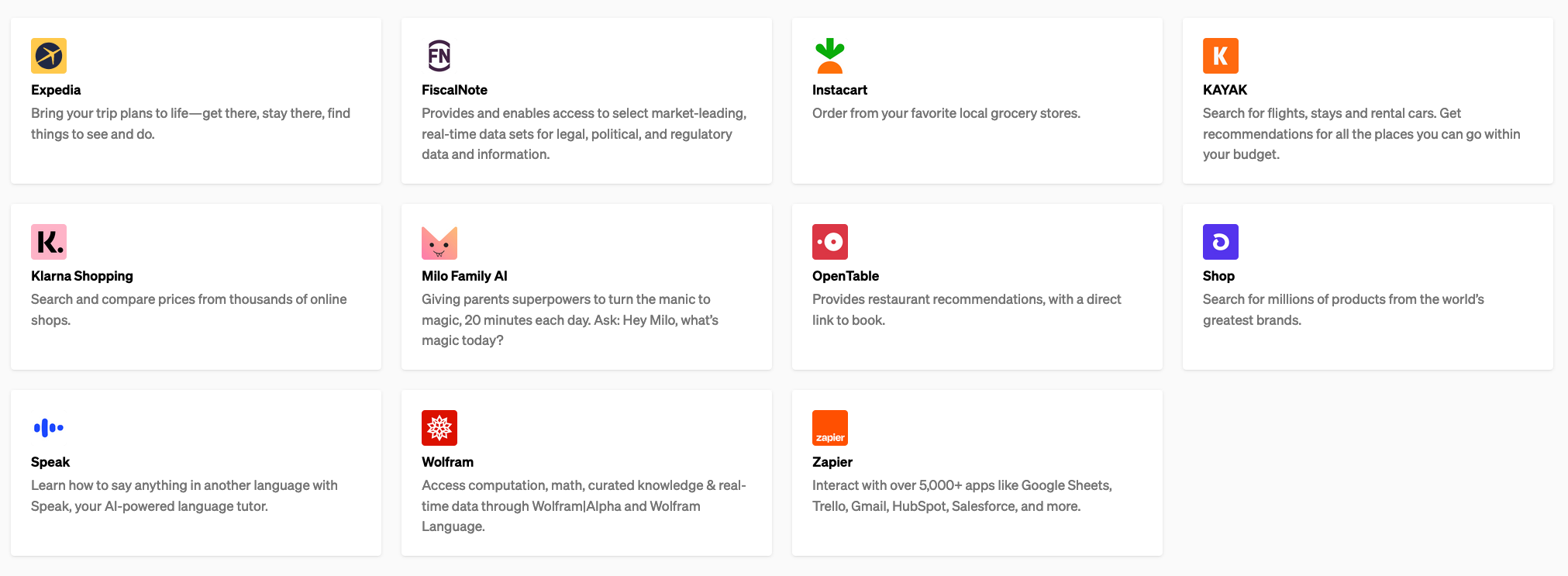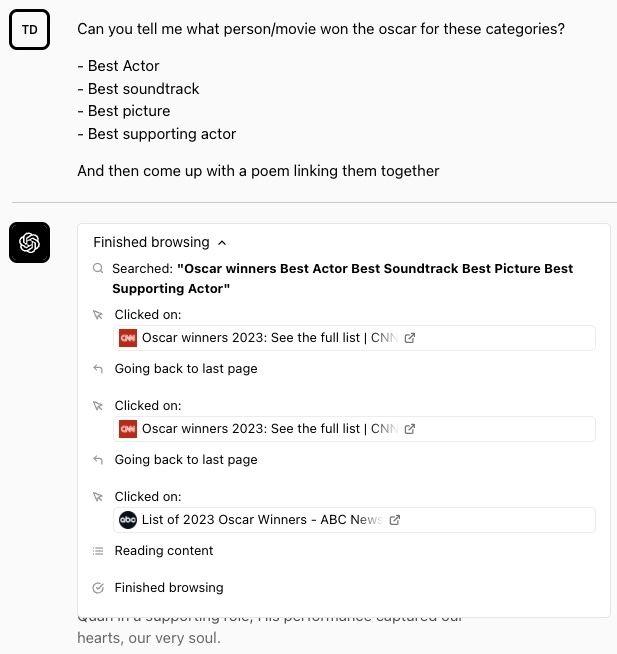OpenAI has been making headlines since the end of last year, primarily due to the immense popularity of its flagship service, ChatGPT. This AI-powered chatbot has taken the world by storm and has proven to be a useful tool for many people. The company has been on a run of announcements, recently unveiling its GPT-4 model, and has now introduced ChatGPT plugins. In this article, we’ll explain what ChatGPT plugins are, what they can do for you, and what plugins are available right now.
What are ChatGPT Plugins?
One of the limitations of ChatGPT is that it can reply to a user’s query based only on the training data it has, which is limited to 2021. This means that ChatGPT is unaware of the latest events or even those that occurred in the last year. Plugins will essentially allow ChatGPT to access the world of the internet and retrieve information from it.
Think of plugins as apps for ChatGPT
Plugins will allow the service to interact with live data from the web and specific websites. Think of plugins as apps for ChatGPT. Using these plugins, the AI chatbot will be able to perform a number of tasks that it has not been able to do until now. OpenAI says that plugins are like ChatGPT’s “eyes and ears” and have the potential to turn the chatbot into a versatile interface for a variety of services and websites.
Using the plugins, ChatGPT will be able call APIs of compatible third-party services to perform actions. In a post, the company wrote “For instance, if a user asks, “Where should I stay in Paris for a couple nights?”, the model may choose to call a hotel reservation plugin API, receive the API response, and generate a user-facing answer combining the API data and its natural language capabilities.”
ChatGPT will support plugins developed both by third-party developers and OpenAI itself. While announcing the plugin support, OpenAI showcased 11 plugins developed by third-party services, such as Slack, Zapier, Expedia, and Instacart, as well as two plugins (web browser and code interpreter) developed by the company itself.
The demo video shared by Greg Brockman, co-founder of OpenAI, shows that users will be able to install plugins directly from the ChatGPT’s main screen. After installing the necessary plugin, users will be able to ask the service to perform complex tasks, such as asking ChatGPT for restaurant recommendations from OpenTable or asking it place an order on Instacart (which are currently beyond its scope right now).
The plugins also seem interoperable, meaning the output of plugin can be used as input for other plugin. For instance, users can, in one ChatGPT prompt, ask the service to use the Expedia plugin to book flights and hotels, and then use the KAYAK plugin to reserve a rental car. This will make for a very good user experience when completing complex workflows.
However, the most promising plugins are those developed by OpenAI. These include a web browser plugin and a code interpreter plugin.
The browser plugin allows ChatGPT to access the internet, expanding its knowledge base beyond the training data. In an example, OpenAI asked the service about the 2023 Oscar winners. Using the plugin, ChatGPT was able to browse the internet, retrieve relevant information, and provide an accurate response. The bot also shows what it is looking for before providing a response. This is something that ChatGPT won’t have been able to accomplish before.
The code interpreter plugin utilizes Python and performs logical calculations based on the problems posed to it. With this plugin, ChatGPT can execute code snippets in Python and provide the output. OpenAI says the code is evaluated in a persistent session and is active for the duration of the conversation. The plugin also allows users to upload files to the current conversation workspace and download the results of their work. However, both browser and code interpreter plugin are in alpha stage right now.
ChatGPT Plugins: Release and Availability
ChatGPT plugins are currently in the ‘alpha’ phase and available only to a small number of users. Interested users can sign up on the company’s waitlist, though the company will prioritize giving access to a small number of developers and ChatGPT Plus users first. Nonetheless, OpenAI plans to roll out larger-scale access to the plugins in future.
“We’re working to develop plugins and bring them to a broader audience,” the company wrote on a blog post. “We have a lot to learn, and with the help of everyone, we hope to build something that is both useful and safe.”
The implementation of plugins is a major milestone for OpenAI, significantly improving ChatGPT’s capabilities. I would even compare it to the release of the App Store for the iPhone, which, we all know, had an incredible impact. As development continues, we can anticipate ChatGPT to become an even more valuable tool.









